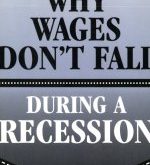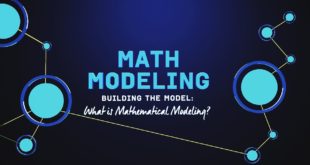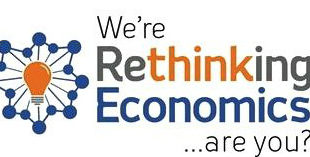It seems reasonable to hope that a successful explanation of wage rigidity would contribute to understanding the extent of the welfare loss associated with unemployment and what can be done to reduce it … Many theories of wage rigidity and unemployment include partial answers to these questions as part of their assumptions, so that the phenomena of real interest are described in the theories’ assumptions. For instance, Lucas concludes that increased unemployment during...
Read More »How economics has become a religion
How economics has become a religion Economics today has — as we all know — become a “the model is the message” discipline. But as long as it does not seriously argue and assess the compatibility of those models and their real-world target systems, the belief that those models in any essential way enhance our possibilities to understand or explain what happens in our economies, is a belief for which there really is no other ground than belief itself. Even if...
Read More »On the use of mathematics in empirical modeling
On the use of mathematics in empirical modeling I have argued that in order for a mathematical modeling exercise to illuminate its target the following two conditions must be met:(1*) the objects under investigation must plausibly be stable, modular, and quantitative, with no qualitative differences among instantiations of each type; and (2*) the relations between them must be fixed and law-like throughout the context under study in the modeling exercise …...
Read More »Economic modeling — a constructive critique
Economic modeling — a constructive critique If we have independent reasons to believe that the phenomena under investigation are mechanical in Mill’s sense, well and good: mathematical modeling will prove an apt mode of representation … But if we have independent reasons to believe that there is more going on in the phenomena under investigation than a mathematical model can suggest – that is, that the phenomena in question are not in fact mechanical in...
Read More »My philosophy of economics
My philosophy of economics A critique yours truly sometimes encounters is that as long as I cannot come up with some own alternative to the failing mainstream theory, I shouldn’t expect people to pay attention. This is however to misunderstand the role of philosophy and methodology of economics! As John Locke wrote in An Essay Concerning Human Understanding: The Commonwealth of Learning is not at this time without Master-Builders, whose mighty Designs, in...
Read More »How to ensure that models serve society
How to ensure that models serve society • Mind the assumptions — assess uncertainty and sensitivity. • Mind the hubris — complexity can be the enemy of relevance. • Mind the framing — match purpose and context. • Mind the consequences — quantification may backfire. • Mind the unknowns — acknowledge ignorance. Andrea Saltelli, John Kay, Deborah Mayo, Philip B. Stark, et al. Five principles I think modern times “the model is the message” economists...
Read More »Economics beyond Krugman, Mankiw, and Rodrik
Economics beyond Krugman, Mankiw, and Rodrik Economics students today are complaining more and more about the way economics is taught. The lack of fundamental diversity — not just path-dependent elaborations of the mainstream canon — and narrowing of the curriculum, dissatisfy econ students all over the world. The frustrating lack of real-world relevance has led many of them to demand the discipline to start developing a more open and pluralistic...
Read More »World Cup, RT CrossTalk, and US domestic censorship
Most of the time I write dense blogs & research papers. I sent the e-mail below to someone close to me. Afterward, I realized it tacitly says a lot about the state of our society (liberals included). Sometimes, mixing things and writing about them in a different way can be revealing. Sent: Saturday, December 17, […]
Read More »Mathematical modeling in economics
Mathematical modeling in economics If scientific progress in economics lies in our ability to tell ‘better and better stories’ one would, of course, expect economics journals to be filled with articles supporting the stories with empirical evidence confirming the predictions. However, the journals still show a striking and embarrassing paucity of empirical studies that (try to) substantiate these predictive claims. Equally amazing is how little one has...
Read More »Deglobalization, conflict, & the self-inflicted threat to democracy: consequences of US imperial over-reach
Because of the seriousness of the world situation, I have decided to get back in the business of doing interviews (which I do not enjoy doing). Here is a link to my interview (13/12/2022) on RT CrossTalk discussing “New Globalization?” In that connection, here is a link to a paper (written in 2018) titled “The […]
Read More » Heterodox
Heterodox







